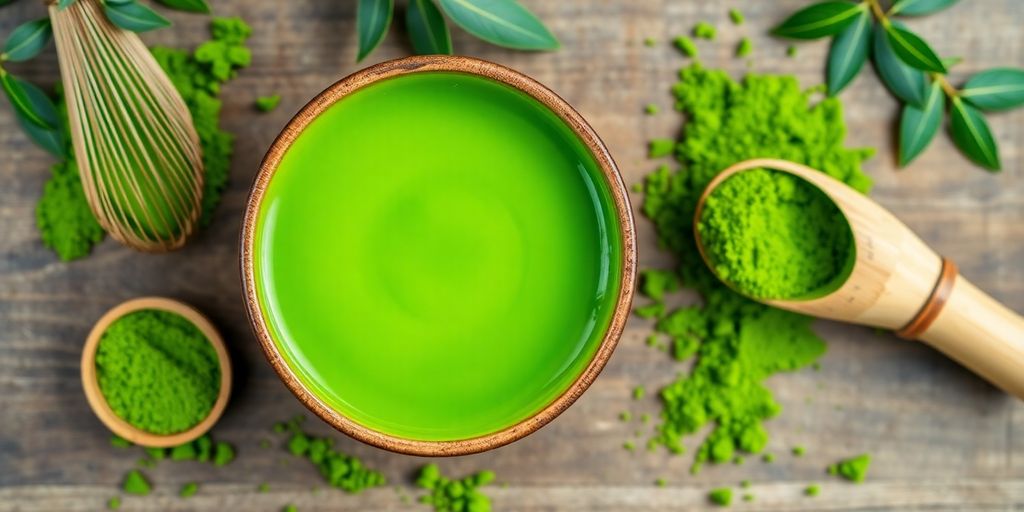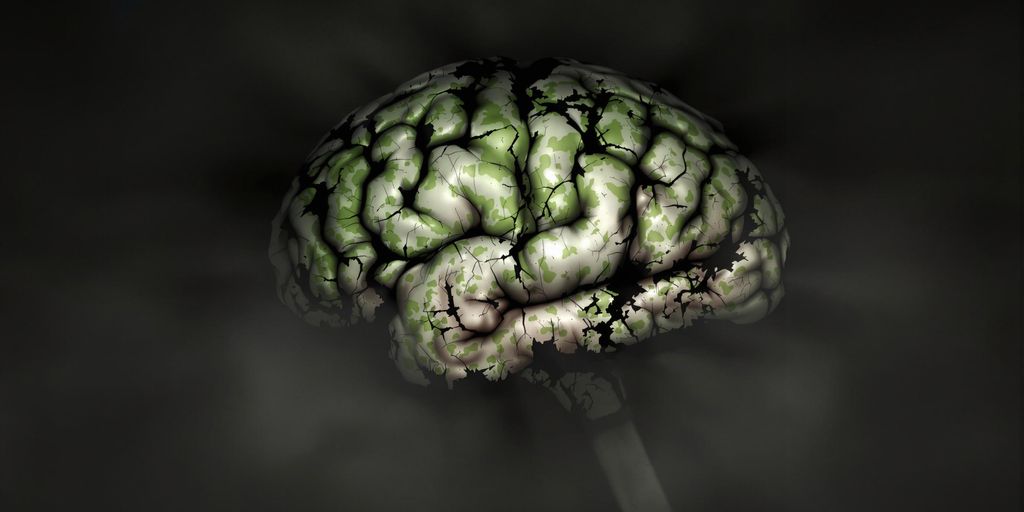Matcha has become a popular choice for those looking to boost their health and wellness. This vibrant green tea is more than just a trendy drink; it’s packed with numerous health benefits that can enhance your daily life. Whether you’re a seasoned matcha drinker or just curious about its potential, understanding the matcha health benefits can help you make informed choices about incorporating this superfood into your routine.
Key Takeaways
- Matcha is a powdered green tea that provides all the nutrients from the whole leaf.
- It’s loaded with antioxidants, particularly catechins, which help fight free radicals.
- Regularly consuming matcha can boost your metabolism and support weight management.
- Matcha can enhance mental focus and clarity, thanks to its unique combination of caffeine and L-theanine.
- Incorporating matcha into your diet can also promote heart health and improve skin appearance.
What is Matcha?
Okay, so you’ve probably heard the buzz about matcha. But what exactly is it? Well, simply put, matcha is a type of green tea, but it’s not your average tea bag situation. It’s a finely ground powder made from specially grown and processed green tea leaves. The cool thing is, when you drink matcha, you’re actually consuming the entire leaf, not just steeping it and tossing it away. This is why matcha packs a bigger nutritional punch than regular green tea.
Think of it this way: with regular green tea, you’re making a tea infusion. With matcha, you’re making a tea suspension, if that makes sense. You’re drinking the actual leaf particles. The benefits of matcha tea are numerous, and it’s become a staple in many wellness routines.
Matcha’s preparation is unique. The tea plants are shade-grown for about three weeks before harvest. This increases the chlorophyll content in the leaves, which is what gives matcha its vibrant green color and boosts its amino acid profile. After harvesting, the leaves are steamed, dried, and then ground into that super-fine powder we know as matcha.
Here’s a quick rundown:
- Grown in the shade to boost chlorophyll.
- Leaves are steamed and dried.
- Ground into a fine powder.
Matcha has deep cultural roots, especially in Japan, where it’s been a central part of tea ceremonies for centuries. It’s not just a drink; it’s an experience. It’s about mindfulness, focus, and appreciating the present moment. It’s also a pretty awesome way to get your caffeine fix without the jitters of coffee.
Nutritional Profile of Matcha
Matcha is way more than just a trendy drink; it’s a nutritional powerhouse. Unlike regular green tea where you toss the leaves after steeping, with matcha, you’re consuming the entire leaf, ground into a fine powder. This means you get a concentrated dose of all the good stuff. Let’s break down what makes matcha so special.
1. Rich in Antioxidants
Matcha is absolutely loaded with antioxidants, especially catechins. One particular catechin, epigallocatechin gallate (EGCG), gets a lot of attention for its health-promoting properties. These antioxidants help fight oxidative stress in the body. Think of it as giving your cells a shield against damage from free radicals.
2. Boosts Metabolism and Aids Weight Loss
If you’re looking to give your metabolism a little nudge, matcha might be your new best friend. Some studies suggest that the catechins in matcha can help increase your metabolic rate and boost fat oxidation. It’s not a magic bullet, but it can be a helpful addition to a balanced diet and exercise routine. For a comprehensive approach to fitness, consider using a health tracking app to monitor your progress.
3. Enhances Mental Clarity and Focus
Matcha contains a unique combination of caffeine and L-theanine. Caffeine gives you that energy boost, but without the jitters you might get from coffee. L-theanine is an amino acid that promotes relaxation without making you feel drowsy. Together, they create a state of calm alertness, perfect for focusing on tasks without feeling wired.
4. Supports Heart Health
Good news for your heart! The catechins found in matcha can help decrease oxidative stress and prevent inflammation, both of which are important for cardiovascular health. Incorporating matcha into your diet could be a simple way to support a healthy heart.
5. Promotes Healthy Skin
Those same antioxidants that are good for your overall health can also benefit your skin. By fighting oxidative stress, matcha can help protect your skin cells from damage, potentially leading to a healthier, more radiant complexion.
Matcha is packed with vitamins and minerals, including vitamin C, selenium, chromium, zinc, and magnesium. These nutrients play a role in various bodily functions, from immune support to energy production.
Here’s a quick look at some key nutrients you’ll find in a typical serving (around 1 gram) of matcha:
| Nutrient | Quantity (approx.) |
|---|---|
| Caffeine | 35 mg |
| L-Theanine | 6 mg |
| Antioxidants | 1573 ORAC units |
Top Health Benefits of Matcha

1. Rich in Antioxidants
Matcha is absolutely loaded with antioxidants, which are great because they help your body fight off those pesky free radicals. These antioxidants, especially catechins like EGCG, are what give matcha its superfood status. Think of it as giving your cells a little shield against damage.
2. Boosts Metabolism and Aids Weight Loss
If you’re looking for a little help with your metabolism, matcha might be your new best friend. Studies suggest that it can help increase your metabolic rate and even boost fat burning, especially when you’re exercising. It’s not a magic bullet, but it can be a helpful addition to a healthy lifestyle.
3. Enhances Mental Clarity and Focus
One of the coolest things about matcha is how it can sharpen your mind without the jitters you get from coffee. This is thanks to the combination of caffeine and L-theanine. The caffeine gives you a gentle energy boost, while the L-theanine promotes a calm, focused state. It’s like having a clear head without feeling wired. I’ve found it really helps when I need to concentrate on work or studying.
4. Supports Heart Health
Matcha might also be good for your heart. Research indicates that regular green tea consumption can help lower bad cholesterol levels and reduce the risk of heart disease. It’s all about those catechins working their magic to keep your cardiovascular system happy.
5. Promotes Healthy Skin
And last but not least, matcha can even contribute to healthy skin. The antioxidants in matcha help protect your skin from damage caused by free radicals and UV radiation. Plus, its anti-inflammatory properties can help soothe skin conditions like acne and eczema.
Incorporating matcha into your routine is a simple way to potentially improve your overall health. From boosting your metabolism to enhancing your mental clarity, the benefits are pretty impressive. It’s definitely worth considering if you’re looking for a natural way to support your well-being.
How to Incorporate Matcha into Your Diet
Okay, so you’re sold on the matcha hype and want to get some of those sweet, sweet benefits? Awesome! It’s actually super easy to sneak matcha into your daily grind. It’s not just for fancy lattes (though those are great, too!).
Matcha is versatile, and that’s what makes it so cool. You can go traditional, or you can get creative. Let’s look at some ideas.
Everyday Matcha Recipes
The easiest way to start is by swapping out your morning coffee a few times a week. Seriously, just try it. You might be surprised. I know I was! Instead of that jittery caffeine crash, you get a nice, sustained energy boost. Plus, you’re getting all those antioxidants. It’s a win-win.
Here’s a super simple matcha latte recipe to get you started:
- Sift 1 tsp of matcha powder into your mug. This helps avoid clumps.
- Add 2 tbsp of hot (but not boiling!) water. Whisk until it’s a smooth, dark green paste.
- Top with your milk of choice (I like almond or oat milk) and sweeten to taste. Boom! Done.
I started adding matcha to my smoothies after workouts, and it’s been a game-changer. It gives me a little extra energy without feeling wired, and I feel like I’m doing something good for my body. Plus, it makes my smoothies look super fancy!
Here are some other ideas:
- Matcha Smoothies: Throw a teaspoon into your favorite smoothie recipe. It pairs well with fruits like banana, mango, and pineapple.
- Matcha Baked Goods: Add it to muffins, cookies, or even pancakes. It gives them a unique flavor and a beautiful green hue. People will think you’re a culinary genius.
- Matcha Overnight Oats: Mix a teaspoon into your overnight oats for a healthy and delicious breakfast. Add some berries and nuts for extra flavor and texture.
Matcha isn’t fully soluble, so blending it well is key. This helps create a smooth texture and integrate the matcha powder effectively.
Potential Side Effects of Matcha
Okay, so matcha is pretty great, but like anything, there can be too much of a good thing. It’s not all sunshine and antioxidants. Let’s talk about the potential downsides.
Caffeine Sensitivity
Matcha has more caffeine than regular green tea, though less than coffee. If you’re sensitive to caffeine, this is something to watch out for. I know if I have too much, I get jittery and can’t sleep. Symptoms of too much caffeine can include anxiety, increased blood pressure, and a rapid heartbeat. If you’re used to coffee, you might be fine, but start slow to see how you react. Pregnant women should definitely talk to their doctor before drinking matcha regularly. It’s always best to err on the side of caution when it comes to caffeine intake during pregnancy.
Digestive Issues
Some people find that matcha can cause digestive discomfort. It might be because of the tannins, or just the way your body reacts to it. If you’re trying matcha for the first time, start with a small amount to see how your stomach handles it. Some people report feeling nauseous or having an upset stomach if they drink too much, especially on an empty stomach. Listen to your body and adjust your intake accordingly. If you experience persistent digestive issues, it’s a good idea to consult with a healthcare professional. You might want to consider food pairings to help with digestion.
Contamination Concerns
Because you’re consuming the entire leaf, the quality of the matcha really matters. Some lower-quality matcha might contain contaminants like lead or pesticides. Always buy matcha from a reputable source that tests for heavy metals and other toxins. Organic matcha is usually a safer bet. It’s worth spending a little extra to ensure you’re getting a clean, high-quality product. Look for brands that are transparent about their sourcing and testing practices.
It’s important to remember that everyone reacts differently to matcha. What works well for one person might not work for another. Pay attention to how your body feels and adjust your intake accordingly. If you have any underlying health conditions or concerns, it’s always best to talk to your doctor before making significant changes to your diet.
Conclusion: Is Matcha Right for You?
Matcha is definitely having a moment, and for good reason! It’s packed with good stuff and can be a great addition to a healthy lifestyle. But, like anything, it’s not a one-size-fits-all solution. Let’s consider if it’s a good fit for you.
First off, think about your caffeine sensitivity. Matcha does contain caffeine, although it’s often reported as a more sustained and gentle energy boost compared to coffee. If you’re super sensitive to caffeine, you might want to start slow or skip it altogether. Also, consider any existing health conditions or medications you’re taking. It’s always a smart move to chat with your doctor or a registered dietitian before making big changes to your diet, including adding something like matcha regularly. They can give you personalized advice based on your health history.
Ultimately, deciding whether matcha is right for you involves weighing its potential benefits against any possible drawbacks, considering your individual health profile, and listening to your body’s response.
Here are some things to consider:
- Caffeine Sensitivity: How do you react to caffeine in general? Do you get jittery or anxious? If so, start with a small amount of matcha or choose a different option.
- Health Conditions: Do you have any existing health conditions, like heart problems or anxiety? Talk to your doctor before adding matcha to your diet.
- Personal Preferences: Do you enjoy the taste of matcha tea? If you don’t like the flavor, you’re less likely to stick with it. There are many ways to prepare it, so experiment!
Matcha isn’t a magic bullet, but it can be a valuable tool for supporting your overall health and well-being. If you’re looking for a way to boost your antioxidant intake, improve your focus, and enjoy a delicious and unique beverage, matcha might be worth a try. Just remember to listen to your body and make informed choices that are right for you.
Final Thoughts on Matcha
In conclusion, matcha is more than just a trendy drink; it’s a health powerhouse that can easily fit into your daily life. From boosting your energy and focus to providing a wealth of antioxidants, this green tea offers a lot of benefits. Whether you enjoy it in a traditional cup or mix it into smoothies and lattes, incorporating matcha into your routine can be a simple yet effective way to enhance your wellness. So, why not give it a try? You might just find that this vibrant green powder becomes a staple in your health journey.
Frequently Asked Questions
What is matcha?
Matcha is a special kind of green tea that is ground into a fine powder. Unlike regular green tea, you drink the whole leaf, which means you get more nutrients.
What are the main health benefits of matcha?
Matcha is known for being rich in antioxidants, helping with weight loss, improving focus, supporting heart health, and promoting healthy skin.
How do I prepare matcha?
To make matcha, mix the powder with hot water and whisk it until it’s frothy. You can also add it to smoothies or lattes.
Can I drink matcha every day?
Yes, many people enjoy matcha daily. Just be mindful of the caffeine content, especially if you’re sensitive to caffeine.
Are there any side effects of drinking matcha?
Some people may experience side effects like headaches or stomach upset if they consume too much matcha, mainly due to its caffeine content.
Is matcha suitable for everyone?
Most people can enjoy matcha, but if you have certain health conditions or are pregnant, it’s best to consult with a doctor.
What does matcha taste like?
Matcha has a unique flavor that is often described as earthy and slightly sweet, with a creamy texture when prepared correctly.
Where can I buy matcha?
You can find matcha at health food stores, specialty tea shops, or online. Look for high-quality matcha for the best taste and benefits.




